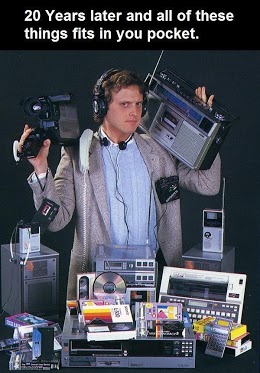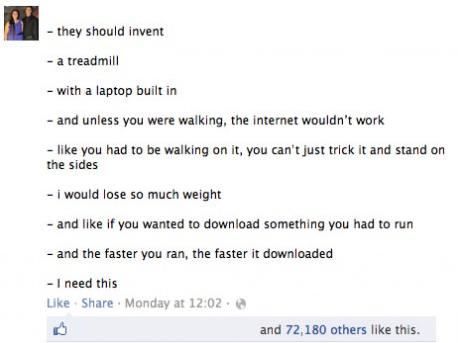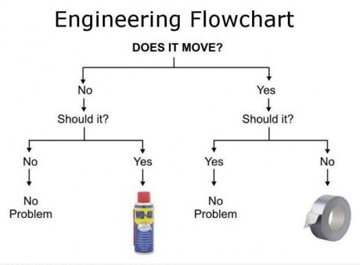Inventions and Innovations

CSB 1
The Spitfire. Up until 1930 the accepted military wisdom was that bombers could not be stopped. Only way to counter them was with Mutually Assured Destruction (although not till nuclear era that that phrase popularized). In 1931 the British sent out specs for a new fighter. No aircraft company could get close, but the Supermarine company suggested a radical new design. An enterprising civil servant found £ 10,000 in budget to order a prototype as 'a most interesting experiment'. It broke all the rules - conventional wisdom was sure that a plane could not exceed 260mph; the Spitfire hit 450 in a dive. The Spit only fired it's guns forward, whereas most assumed needed a two-seater with a gunner in a turret.
In 1938, a year before the war began, one expert stated: "We should now build, as quickly and in as large numbers as we can, heavily armed aeroplanes designed with turrets for fighting on the beam and in parallel courses ... the Germans know we have banked upon the forward-shooting plunging Spitfire whose attack ... if not instantly effective, exposes the pursuer to destruction." The expert was Winston Churchill. (He was the boss so they built the plane he wanted, as well. It was the Boulton-Paul Defiant, and you've never heard of it because it was a sitting duck for German fighters).
The Spitfire was a long way down the alphabet from Plan A, not least because of the unlikely characters associated with it. Supermarine was run by Noel Pemberton Billing, a rich politician who hated lesbians. He once won a libel case where he accused an exotic dancer of spreading "The Cult of the Clitoris". The Spitfire's designer was a cantankerous engineer named Reginald Mitchell who refused to work with the bureaucracy when Vickers, a big defence company, bought Supermarine. The company let him run a 'skunk works'. Then there was Fanny Houston. In 1929 and 1930 Spitfire's predecessor won the Schneider Trophy and held the world speed record. But the government withdrew funding for the plane's development as the Great Depression bit. Lady Houston had become the richest woman in Britain after marrying a shipping millionaire and inheriting his fortune. Furious at the lack of official support, she wrote a cheque to Supermarine that covered the entire development costs of the Spitfire predecessor.
CSB 2
The PlayPump sounded like a great idea - a roundabout connected to a pump to get water for villages in Africa. Idea being that kids would play on it and water a side effect. But turns out the only time kids play on it is when a foreigner with a camera appears. Rest of time it's an inefficient pump. A traditional hand-pump took 28 seconds to fill a 20L bucket; PlayPump took over 3 minutes of strenuous running around. Now accept that PlayPumps work in large primary schools but nowhere else.
Big problem that aid groups get carried away by projects which look good - free textbooks or flip charts for schools etc. But when someone actually measured the programs, found that had little impact, and best outcome came from de-worming schoolkids. The aid projects typically fail because of 'god complex' - they are some outsiders view of what is best for the Africans. To be honest, they should compare (with randomised trials) the pet project with just giving the same amount of money to the villagers, and seeing which gotbest results.
QUOTATIONS
"Without question, the greatest invention in the history of mankind is beer. Oh, I grant you that the wheel was also a fine invention, but the wheel does not go nearly as well with pizza." .
More Quotes about Inventions
ANECDOTES
1) Everything that's already in the world when you're born is just normal;
2) Anything that gets invented between then and before you turn thirty is incredibly exciting and creative and with any luck you can make a career out of it;
3) Anything that gets invented after you're thirty is against the natural order of things and the beginning of the end of civilisation as we know it until it's been around for about ten years when it gradually turns out to be alright really. - Douglas Adams
Designed in 1934 by the Bristol Aircraft Company, the Bristol Blenheim started life as a small passenger plane. She was commissioned and funded by Lord Rothermere, the wealthy proprietor of the Daily Mail who wanted his journalists to be first on the scene. Rothermere envisaged a feisty, speedy, nimble and useful little aeroplane, that would be one of the best twin-engined monoplanes in the world. When she was tested in 1935 it was discovered that she could fly at over 300 mph - 50 mph faster than any of the British fighter planes then in use.
Story of pet rock craze several unforeseen consequences. Firstly it cost a lot of investors money because it was used to justify other bad ideas ("Pet rock worked and my idea makes more sense than that"). Started with a woman complaining about the cost of pet maintenance, so a friend made up gag about a pet rock. Girl takes the idea to her boss, boss rubbishes it, but tightwad accountant says he'll invest, so boss has second thoughts, invests 10 grand, makes quick million before everyone else cashes in. But because he now had a reputation for spotting success, others brought him their ideas, one of which was musical greeting card (which could patent).
Japanese inventor Kenji Kawakami's "New Idea Academy," which features his own innovations and counts among his most successful products a portable washing machine that straps onto the user's leg (swirling the clothes with each step); a travel necktie with room for writing utensils and a calculator; padded booties for cats so they can dust the floor while walking around; and a "solar flashlight" that provides a strong beam of light as long as the sun is shining.
Guy who modified class photos so all heads slightly inclined towards him in centre (and teachers became Gandhi and Marilyn Monroe)
More Anecdotes about Inventions
ARTICLES
Downloading - quite often stealing, in the eyes of the law - music, movies, books and photos is easier than bobbing for apples in a bucket without water. It has kept legions of lawyers employed fighting copyright violations without a whole lot to show for their efforts in the past decade. You think that was bad? Just wait until we can copy physical things.
It won't be long before people have a 3-D printer sitting at home alongside its old inkjet counterpart. These 3-D printers, some already costing less than a computer did in 1999, can print objects by spraying layers of plastic, metal or ceramics into shapes. People can download plans for an object, hit print, and a few minutes later have it in their hands.
3D Printers
The biologists have done it again. Not so long ago it was cloning and embryonic stem cells that challenged moral imagination. These days all eyes are on a powerful new technique for engineering or “editing” DNA. Relatively easy to learn and to use, CRISPR is faster, more reliable and cheaper than previous methods for modifying the base pairs of genes. CRISPR is made up of scissors in the form of an enzyme that cuts DNA strands and an RNA guide that knows where to make the cut, so the traits expressed by the gene are changed.CRISPR Implications
THE device in your purse or jeans that you think is a cellphone - guess again. It is a tracking device that happens to make calls. Let's stop calling them phones. They are trackers.It's Not A Phone, It's A Tracker
A cheap, easy-to-use fire extinguisher that fits comfortably in a pocket, and costs $1. It consists of a plastic pouch of vinegar containing a sealed capsule of baking soda. In the event of a fire, the user simply breaks the capsule inside the pouch, allowing it to mix with the vinegar, which produces carbon dioxide. The user then only needs to tear off a perforated corner to release the flame-smothering mix.$1 Fire Extinguishers
More Articles on Inventions
BOOKS
The invention of eyeglasses in the Twelfth Century changed the idea that anatomy was destiny. The body as well as the mind could be improved. Amusing Ourselves To Death
Al Capone earned $106m in 1927 but forgot to file a tax return, so off to prison he went. But a lasting legacy. One of his charitable donations was a million dollars to provide milk or schoolchildren. But he insisted that a use-by date had to be put on every bottle because he'd hated the taste of sour milk he'd been forced to drink as a child. It was the first time anyone had had that idea, and it set a standard that's endured to today. Billy Connolly's Route 66
Could argue that the telephone made skyscrapers possible - without it there would simply be too many message boys needed to run up and down the stairs. But the most unexpected aspect was the strange organization that grew out of it - Bell Labs. As detailed in The Idea Factory), AT & T were able to convince legislators that they should be a regulated monopoly because of the expense of developing and maintaining the network. In return, they agreed that the results of the research of Bell Labs would be unpatented public property. They could keep their profits, but they had to give away their ideas. How We Got Here
"Smartness is an ability to absorb new facts. To walk into a situation, have something explained to you, and immediately say, "Well, what about this?" To ask an insightful question. To absorb it in real time. A capacity to remember. To relate to domains that may not seem connected at first."(Bill Gates)The Impatient Optimist.html
Telephones, for example, were deemed pointless by the head of the General Post Office, because there were 'plenty of small boys to run messages', while in 1881, the Post Office's chief engineer had thought electric lighting 'a completely idiotic idea'. As for Wilbur Wright and his brother Orville, they were indeed ridiculed during their early experiments with aviation. Even after they had successfully flown their Flyer I for nearly a minute in 1903, and been photographed doing so, one newspaper still ran the headline 'Flyers or Liars?'
But it is not so surprising that 'they all laughed', when you consider how far-fetched most inventions seem before they are adopted. By definition, inventors are looking at the world anew, so no wonder it takes the rest of us a while to catch up. When Robert Stephenson was pioneering locomotive steam engines from the 1820s onwards, many feared that travelling at more than 20 miles an hour could send passengers mad, or damage their eyes from the sheer rush of the landscape through the window. Imagination and a Pile of Junk:
Japan leading way with robots which will potentially replace humans. Foresee need nurses for growing number of elderly.. US more dependent on cheap immigrant labor. So US see robots as tools, Japan as beings. Love and Sex With Robots
Your grandfather-inventor worked alone in his garden shed, and had to make everything from scratch, then find the money to patent his invention, and finally find a way to get it manufactured. Today he would build on the work of others, compressing development time into months instead of years. Rather than patenting, he'd publish ideas online for others to share and improve.
Or, he could send his design to a company which made units of 1 to 1000, and instead of searching for distributors, he would set up his own ecommerce website, and customers would come to him via Google. Makers
More Books about Inventions
BIGGEST CHANGES





IMAGES


INVENTIONS WE NEED



CARTOONS

More Art Cartoons
SONGS
Songs - the poetry of modern life
Well now home entertainment was my baby's wish
So I hopped into town for a satellite dish
I tied it to the top of my japanese car
I came home and I pointed it out into the stars
A message came back from the great beyond
There's fifty-seven channels and nothin' on
More Invention/Technology Songs
Short Stories
Robot Police? Arm of the Law
Petrolheads after the oil runs out Speed of the Cheetah, Roar of the Lion
The future of rock music? Wired
WHAT GENDER ARE YOU?
Alien being drops in and gives you a magic machine that will instantly cure all human ailments. Do you
a) present it to the UN
b) set up a free hospital
c) take it apart